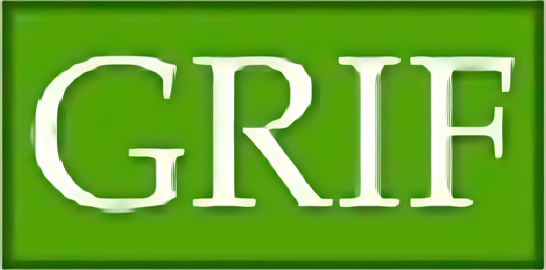
Timeline
No-Cost-Extension – October 2016
No-Cost-Extension – March 2019
Cost-Extension – July 2022

Project Status & Information
Capacity Development
ALT Results (until December 2023)
Absolute Grants: Absolute Grants refer to the complete and unconditional transfer of land ownership from the government to an individual or community. In the context of the Amerindian Land Titling (ALT) Project, Absolute Grants legally formalize the ownership of land by Amerindian villages, ensuring they have full rights to the land without any conditions or limitations imposed by the state.
Demarcations: Demarcations involve the precise determination and marking of boundaries for a piece of land. This process includes surveying the land, mapping its exact borders, and often physically marking these boundaries on the ground. For the ALT Project, demarcations are essential to define the communal lands claimed by Amerindian villages accurately.
Certificates of Title: Certificates of Title are official legal documents that establish and confirm ownership of a specific piece of land. They serve as proof of ownership and provide legal recognition of the rights of the holder. In the ALT Project, Certificates of Title are issued to Amerindian village councils, legally recognizing their communal land holdings and protecting their land rights.

Background
The Amerindian Land Titling (ALT) Project seeks to enable Amerindians to secure their lands and natural resources with a view toward sustainable social and economic development. The titling of communities is expected to strengthen land tenure security and expand Amerindians’ asset base, enabling improved long-term planning for future development.
This project aims to facilitate and fast-track the Amerindian Land Titling process. Historically, high cost has been a barrier to achieving this policy objective. The Project seeks to a) have land titles issued and the demarcation process completed for all Amerindian villages that submit requests, including those that request extensions, b) strengthen existing mechanisms to deal with unresolved land issues, c) improve the communication and outreach efforts of the Ministry of Amerindian Affairs.
The Amerindian Land Titling (ALT) Project is a pivotal initiative aimed at accelerating the process of land titling and demarcation for Amerindian villages in Guyana. By channeling both technical and financial resources from the Norway-Guyana partnership, the project endeavours to ensure that Amerindian communities can secure their lands and natural resources. This project facilitated the legal titling of communal lands for Amerindian villages, alleviating the financial burden associated with surveying, demarcation, and mapping. Land titling and demarcation are expected to fortify land tenure security and expand the asset base of these communities, thus enabling improved long-term planning and development.
The project is grounded in free, prior, and informed consent (FPIC) principles, ensuring that the engagement and consultation with Amerindian villages are conducted respectfully and inclusively. The ALT Project is operationalized through the direct involvement of communities based on their requests, maintaining a community-centric approach throughout its implementation.
Despite implementation challenges due to political shifts and the COVID-19 pandemic, the project received a fourth extension in August 2022, extending its completion to December 2024 with additional funding of US$2,470,380. By the end of 2022, significant progress was made, including the issuance of titles, demarcation completions, and the preparation of key cabinet papers, reflecting the project’s resilience and ongoing commitment to empowering Amerindian communities.
The primary objectives of the ALT Project include:
- Issuing Land Titles and Completing Demarcation: The project aims to issue land titles and complete the demarcation process for all Amerindian villages that submit requests. This includes villages seeking extensions of their lands, ensuring that every community’s needs are met comprehensively.
- Strengthening Mechanisms for Unresolved Land Issues: The project seeks to enhance existing frameworks to address any unresolved land issues effectively. By reinforcing these mechanisms, the ALT Project aims to provide fair and timely resolutions to land disputes.
- Enhancing Communication and Outreach: Improving the communication and outreach efforts of the Ministry of Amerindian Affairs is a key focus. This ensures that Amerindian communities are well-informed and actively engaged in the titling process.
RESULTS
Land titles issued and demarcation process is partially completed for all Amerindian Villages that submit requests
In 2022, the ALT Project focused on issuing Absolute Grants and addressing land extension requests for ten communities, including Capoey, Mashabo, Hotoquai, Hobedaia, Red Hill, Little Kanaballi, Bethany, Nappi, Moco Moco, and Arrau. Seven communities were visited, with follow-up meetings and reports submitted to the Minister of Amerindian Affairs. Capoey and Mashabo received their grants, and draft Cabinet Papers were prepared for Moco Moco, Hotoquai, and Hobedaia. Red Hill’s extension process involved replotting after a village meeting, making it ready for consideration. The project also addressed urgent requests from Kaikan, Kambaru, Chenapau, and Arrau, where villagers were dissatisfied with land descriptions and mining permits. The ALT PMU revisited these villages to clarify the demarcation process and address concerns, leading to a corrected and endorsed Grant Plan for Arrau, highlighting the ALT Project’s commitment to securing land titles and addressing community concerns.
Increased access to existing and alternative mechanisms for resolving land disputes has been fully achieved.
The Grievance Redress Mechanism (GRM) of the ALT Project was created to resolve issues related to the titling of indigenous peoples’ lands by receiving and addressing concerns, facilitating resolution among stakeholders, and operating transparently and collaboratively in line with the Guidelines for Amerindian Land Titling in Guyana adopted in April 2017.
Additionally under this output, the ALT Project organized a two-day workshop aimed at training fourteen participants from various agencies involved in land administration in mediation techniques to aid in dispute resolution and support the goal of facilitating land titling for Amerindian communities.
A Revised Communication Strategy, including a handbook describing the process of demarcation and titling and the social and economic impacts of secure land tenure, has been achieved.
A revised Communication Strategy, including a handbook describing the process of demarcation and titling and the social and economic impacts of secure land tenure, was developed. All fourteen communities reached through visits were targeted with communication tools and strategies for engagement, with appropriate in-house materials shared and thorough discussions held to address all questions and concerns on land titling, utilizing translators as needed for effective communication with community members.

Key Results
Area Titled before and Achieved Amerindian Land Titling Project
Area Titled before, achieved by Amerindian Land Titling Project and Planned by Amerindian Land Titling Project



